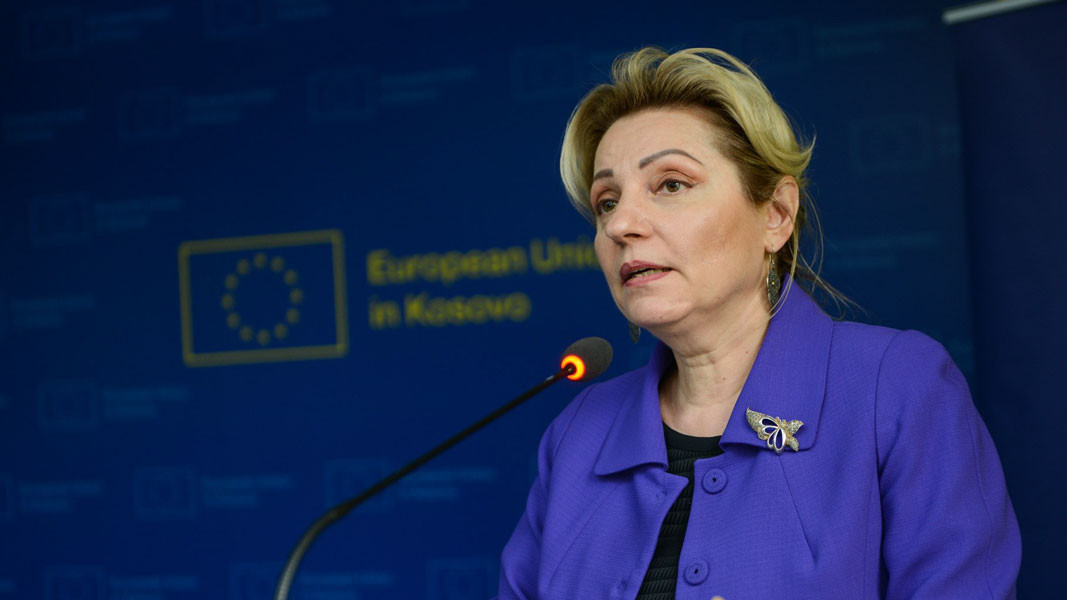Against the background of lack of clarity regarding the start of EU membership talks for countries such as Albania and North Macedonia, the European perspective on Kosovo seems like a distant notion, too. This Western Balkan country also has an ambition to become an EU member, but it still falls under the category of "potential candidate for membership", which means that it still has a long way to go.
In order to help the country promote stability, peace, democracy and a multi-ethnic society, the EU has a special representation in Kosovo, which must also guarantee stability throughout the region and develop good neighborly relations between the Western Balkan countries. Since 2016, EU Special Representative in Kosovo has been Bulgarian Natalia Apostolova.

“There are still five member states that do not recognize Kosovo's independence. Therefore, we have to have this "double hat" of the representative of the European Union”, says Apostolova. “My mandate as Special Representative comes from the Council of Foreign Ministers and consists in communication with the government and institutions in Kosovo. On the other hand, I also manage the Union's financial aid for Kosovo, which amounts to EUR 100 million per year. I am currently in charge of a delegation of 155 people. It is one of the largest delegations the EU has in the world, and our role is to support the development of statehood here. You know that Kosovo is the youngest democracy - only 10-12 years old and we want to see it prosper. We participate in everything we call “state building”. We assist in the development of institutions and insist on the rule of law in all its forms. Therefore, experts from Member States are working on different projects related to these processes.”
According to EU’s Special Representative Natalia Apostolova, the achievements in Kosovo during the Bulgarian Presidency of the EU Council are no small matter, as for 15 years no one has put the topic of the Western Balkans among European policy priorities:
“Bulgaria, through its Presidency and priorities such as the Western Balkans, re-focused the spotlight on our neighbors, complementing the strategy adopted by the European Commission with respect to the Western Balkans. This document set out the specific tasks and conditions to be fulfilled by the six partner countries. For the first time, this strategy talks about six partners. Until then, Kosovo had never been viewed as an equal partner to the rest.”
The topic of the Western Balkans will also be a priority during Croatia's EU presidency. Its program, following the example of Bulgaria, also provides for a high-level summit on this issue.
English Rossitsa Petcova
Photos: eeas.europa.euNearly five months after the last early parliamentary elections in Bulgaria, the 51st National Assembly has "grown" by one party and is now formed by nine political formations. The Constitutional Court declared the election of 16 MPs illegal , and..
Georgi Kuzmov, who was removed from his position as mayor of the Sofia district of Oborishte, is returning to his post after winning the new elections with nearly 70% of the votes. At the end of last year, the Supreme Administrative Court..
Velichie party enters the 51 st National Assembly with 10 seats, the Central Election Commission (CEC) has decided following the ruling by the Constitutional Court which alters the results of the election for National Assembly held on 27 October,..

+359 2 9336 661
